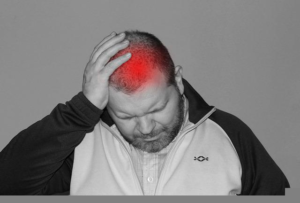Headache Treatment and Headache Relief
 Do you suffer from headaches? If so, you’re not alone. Millions of people around the world experience headaches on a regular basis. While there are many different causes of headaches, one thing is for sure: they can be incredibly painful and debilitating. In this article, we will discuss headache treatment and headache relief. We will also explore the benefits of chiropractic care for headaches. If you are looking for headache relief, please read on!
Do you suffer from headaches? If so, you’re not alone. Millions of people around the world experience headaches on a regular basis. While there are many different causes of headaches, one thing is for sure: they can be incredibly painful and debilitating. In this article, we will discuss headache treatment and headache relief. We will also explore the benefits of chiropractic care for headaches. If you are looking for headache relief, please read on!
Headaches: Types, Symptoms, Causes, Diagnosis & Treatment
There are many different types of headaches, and each one can cause a variety of symptoms. Some of the most common types of headaches include tension headaches, migraines, and cluster headaches. The symptoms of each type of headache are distinct. We’ll go through the three most common types of headaches: tension headaches, migraines, and cluster headaches in this article. Each form of headache will be explored in detail as well. It is critical that you see a doctor if you are suffering from recurrent head pain; it’s essential to determine the source of your problem.
Tension Headaches
Tension headaches are the most common type of headache. They are caused by stress and tension in the muscles of the neck and scalp. Tension headaches can be very painful and debilitating. Symptoms of tension headaches include:
-
- pain that is dull and constant
- pressure or tightness around the forehead, temples, or back of the head
- tenderness in the muscles of the neck and shoulders
- a headache that is worse in the morning or afternoon
Migraines
Migraines are a type of headache that can be very severe. They are often accompanied by nausea, vomiting, and sensitivity to light and sound. Migraines can last for hours or even days. Symptoms of migraines include:
-
- throbbing or pulsing pain on one side of the head
- nausea and vomiting
- sensitivity to light and sound
Cluster Headaches
Cluster headaches are a type of headache that is characterized by severe pain on one side of the head. They often occur in groups or clusters, hence the name. Cluster headaches can be very debilitating and interfere with your daily activities. Symptoms of cluster headaches include:
-
- severe pain on one side of the head
- red, watery, or swollen eyes
- runny nose or congestion
- sweating
If you are experiencing any of these symptoms, it is important to see a doctor as soon as possible.
Headaches can be a sign of a more serious underlying condition. Treatment for headaches will vary depending on the type of headache and its cause.
Identifying Headache Symptoms
 Headache symptoms can vary from person to person, and range from mild to severe. Some common headache symptoms include throbbing pain, pressure, sensitivity to light or noise, and nausea.
Headache symptoms can vary from person to person, and range from mild to severe. Some common headache symptoms include throbbing pain, pressure, sensitivity to light or noise, and nausea.
There are many different types of headaches, and the cause can vary from one person to the next. Some common headache triggers include stress, lack of sleep, caffeine withdrawal, allergies, and menstruation.
If you are experiencing frequent headaches, it is important to seek medical help in order to determine the cause and get proper treatment. Headache treatment options vary depending on the type of headache you are experiencing but may include medication, chiropractic care, or lifestyle changes.
How to relieve headache symptoms
Chiropractic care is a non-invasive treatment option that has been shown to be effective for treating headaches. Chiropractors use a variety of techniques to adjust the spine and relieve tension in the muscles and joints. This can help to improve blood flow and reduce inflammation, which may help to alleviate headache symptoms.
If you are experiencing frequent headaches, it is important to seek medical help in order to determine the cause and get proper treatment. Headache treatment options vary depending on the type of headache you are experiencing but may include medication, chiropractic care, or lifestyle changes.
Making lifestyle changes such as reducing stress, getting enough sleep, and eating a healthy diet can also help to reduce the frequency and severity of headaches. If you are experiencing frequent headaches, talk to your doctor about what treatment options may be right for you.
Causes of headaches
Most people think of headaches as just a pain in the head. But headaches are actually an indication that something is wrong somewhere else in the body. There are many different causes of headaches, and it’s important to identify the cause in order to get relief.
Some common causes of headaches include:
-
- stress
- tension
- dehydration
- caffeine withdrawal
- poor posture
- eye strain
- food allergies
- sinus infections
- TMJ (jaw pain)
If you’re suffering from headaches, it’s important to see a chiropractor. A chiropractor will be able to help identify the cause of your headaches and provide relief.
Diagnosis of headache and headache treatments
Headaches are one of the most common health complaints in the world. They can be caused by many different things, such as stress, muscle tension, allergies, or even caffeine withdrawal. And while headaches can sometimes go away on their own, more often than not they require treatment.
The first step in diagnosing and treating a headache is to figure out what type of headache it is. There are four main types of headaches: tension, migraine, cluster, and sinus. Once you know which type of headache you have, you can start to look for specific treatments.
Chiropractic Care for Headaches
One popular treatment option for all types of headaches is chiropractic care. Chiropractors are trained to identify the source of your headache and then use a variety of techniques to treat it. These can include spinal manipulation, massage, and acupuncture.
If you’re looking for more traditional headache treatments, there are a number of options available as well. Over-the-counter pain medications like ibuprofen or aspirin can be effective at treating tension headaches and migraines. For more severe headaches, your doctor may prescribe stronger medications or even botox injections.
When to see a doctor
If you have a headache that is severe or lasts more than a few days, it’s important to see a doctor. This is especially true if you also have other symptoms like fever, nausea, or vomiting. These could be signs of a more serious condition and require medical treatment.
Headaches are one of the most common health complaints in the world. If you’re suffering from headaches, it’s important to see a chiropractor. A chiropractor will be able to help identify the cause of your headaches and provide relief. Chiropractic care is an effective treatment for all types of headaches, including tension headaches, migraines, cluster headaches, and sinus headaches.
If you have a headache that is severe or lasts more than a few days, it’s important to see a doctor. This is especially true if you also have other symptoms like fever, nausea, or vomiting. These could be signs of a more serious condition and require medical treatment.
5 Natural Remedies to Get Rid of Headaches Naturally

There are many different ways to treat headaches, both chronic and acute. Some people rely on medication, while others prefer natural remedies. Here are five of the most popular natural remedies for treating headaches.
Chiropractic care
Chiropractic care is a popular natural remedy for headaches. chiropractors use spinal manipulation and other techniques to relieve pain and tension in the head, neck, and shoulders. A study published in The Journal of Manipulative and Physiological Therapeutics found that chiropractic care was an effective treatment for chronic tension headaches.
Acupuncture
Acupuncture is another popular natural remedy for headaches. This ancient Chinese practice involves inserting thin needles into specific points on the body to relieve pain. A review of studies published in The Cochrane Database of Systematic Reviews found that acupuncture was an effective treatment for migraines and tension headaches.
Massage therapy
Massage therapy is a popular way to relieve tension headaches. A study published in The Journal of Alternative and Complementary Medicine found that massage therapy was an effective treatment for chronic tension headaches.
Herbal supplements
Herbal supplements are a popular natural remedy for headaches. Some of the most common herbs used to treat headaches include feverfew, ginger, and ginkgo biloba. A review of studies published in The Cochrane Database of Systematic Reviews found that herbal supplements were effective at reducing the frequency and severity of migraines.
Relaxation techniques
Relaxation techniques are another popular natural remedy for headaches. Techniques such as yoga, tai chi, and meditation can help to reduce stress and tension, which can trigger headaches. A review of studies published in The Cochrane Database of Systematic Reviews found that relaxation were an effective treatment for migraines and tension headaches.
Headache treatments vary from person to person. Some people who experience infrequent headaches might not need any headache treatment at all beyond over-the-counter pain medication. However, if you experience chronic or severe headaches, you might want to explore some different headache treatments to find what works best for you.
If you suffer from chronic headaches, talk to your doctor about which headache treatment or combination of treatments might be right for you.
How to get rid of a headache pain without medication

The sensation of a headache is probably familiar to everyone. Even the simplest activities might become overwhelming when your temples throb, you’re sensitive to light or sound, and you’re nauseated. While over-the-counter medicines can help some people, they frequently come with negative side effects such as drowsiness or tummy upset.
Chiropractic headache treatment
Chiropractic headache treatment is another popular choice. A chiropractor will utilize light adjustments to the spine and neck to restore alignment and relieve tension on the nerves, which can often provide immediate pain relief.
Acupuncture: drug-free headache treatment
Acupuncture has been used for thousands of years as a drug-free headache treatment. Fine needles are inserted into particular points on the body to relieve discomfort and tension. Many patients learn that acupuncture gives long-term relief from headaches while having few or no negative side effects.
It’s critical to see your doctor if you’re having persistent headaches. Once a diagnosis has been determined, they can help you discover the best headache treatment strategy for your needs. You’ll most likely discover a drug-free solution that works for you with some trial and error.
Does migraine headaches different from all other types of headaches
Migraine headaches are different from all other types of headaches. They are often more severe and can cause a great deal of pain and discomfort. In some cases, they can be disabling.
There are many different types of headaches, and each type has its own set of causes and symptoms. Migraine headaches are one type of headache that can be particularly difficult to treat.
Chiropractic care is a form of alternative medicine that focuses on the diagnosis and treatment of musculoskeletal disorders. Chiropractors use a variety of techniques to relieve pain, including spinal manipulation, massage, and exercises.
There is some evidence to suggest that chiropractic care may be effective in treating migraines. A 2012 systematic review found that chiropractic care was moderately effective in reducing the frequency and intensity of migraines. However, the authors noted that more research is needed to confirm these findings.
Headache frequency and migraine attack
A headache is a common condition among humans. Headaches may be caused by a variety of factors, including stress, tension, allergies, and even dehydration. Some people, however, suffer from headaches on a daily basis. Migraine is actually the third most prevalent illness in the world, affecting more than 36 million individuals worldwide.
The distinction in between primary and secondary headaches is significant. Primary headaches, such as migraines and tension headaches, are not related to any underlying disease. Secondary headaches, on the other hand, are caused by an underlying medical condition. For example, a sinus infection might produce a headache as a result of the pressure it applies to your head and face.
Common migraine symptoms and how to prevent migraines
Migraines are a common type of headache that can be very debilitating. While the cause of migraines is not completely understood, there are some things that you can do to help prevent them. Some common migraine symptoms include throbbing or pulsing pain, sensitivity to light and sound, nausea, and vomiting. If you are experiencing any of these symptoms, it is important to see a doctor or headache specialist to get the proper diagnosis and treatment.
There are several things that you can do to help prevent migraines. These include:
– Managing stress: Stress is a common trigger for migraines. Try to find healthy ways to manage stress, such as exercise, relaxation techniques, or journaling.
– Avoiding triggers: If you know what your migraine triggers are, try to avoid them. Common triggers include bright lights, loud noises, strong smells, and certain foods.
– Eating healthy: A healthy diet can help reduce the frequency of migraines. Eat plenty of fruits, vegetables, whole grains, and low-fat proteins.
– Getting enough sleep: Most people need between seven and eight hours of sleep per night. If you are not getting enough sleep, try to establish a regular sleep schedule.
If you are experiencing migraines, there are several treatment options available. These include over-the-counter and prescription medications, as well as natural remedies. Talk to your doctor about which option is right for you. Chiropractic care is also an effective treatment for migraines. A chiropractor can help align your spine and relieve pressure on your nerves, which may help reduce the frequency and severity of your migraines.
The dangers of medication overuse related to severe headache and migraine pain
Medication overuse headaches, also known as rebound headaches, are a type of headache that can be caused by the overuse of pain medications. These types of headaches are often severe and may occur daily. The National Headache Foundation and the American Migraine Foundation both provide information about medication overuse headaches, including causes, symptoms, and treatment options.
Chiropractic care is a type of headache treatment that does not involve the use of medication. chiropractors use a variety of techniques to adjust the spine and relieve pressure on the nerves. Chiropractic care is often used to treat tension headaches and migraines. A study published in The Journal of Manipulative and Physiological Therapeutics found that chiropractic care was effective in reducing the frequency and intensity of headaches in adults.
Nonsteroidal drugs and over the counter medications
Nonsteroidal anti-inflammatory drugs (NSAIDs) are a type of medication that is used to treat pain and inflammation. They are available over the counter as well as by prescription. There are several types of NSAIDs, including ibuprofen, naproxen, and aspirin.
NSAIDs work by blocking the production of prostaglandins, which are hormones that cause inflammation. They are effective in treating a variety of conditions, such as headache, muscle pain, arthritis, and menstrual cramps.
While NSAIDs are generally safe when used correctly, they can have side effects such as stomach upset, heartburn, diarrhea, and bleeding ulcers. They can also interact with other medications and supplements. It is important to talk to your doctor before taking NSAIDs if you have any health problems or are taking other medications.
You're in pain and you don't know where to turn?
You’ve probably been to a few doctors and none of them have been able to help. You’re starting to think that you’ll just have to live with the pain.
We understand how you feel since we’ve been in the same situation. That’s why we give a no-obligation consultation so that we can discover what is wrong and start assisting you right immediately.
